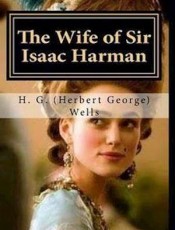now, to your calm, collected, and reasonable individual, john’s little trouble may appear nothing but rank absurdity. it probably will appear nothing but rank absurdity, seeing that it had existence merely in the fact that he had felt a certain attraction towards the man, whom fate had that evening thrown in his path.
and why on earth shouldn’t he feel attraction!—so your reasonable individual may exclaim.
but john was not reasonable. he was one of your ultra-sensitive characters, to whom the merest dust speck may prove, at moments, a source of perpetual annoyance. he desired to feel nothing but a whole-hearted detestation of this interloper.
i am not defending john’s desires,—they certainly cannot be termed precisely christian,—i merely state them as existing. their fulfilment would have left him entirely free to draw a line [pg 144]between himself and the one who had arisen to harass the inhabitants of delancey castle. he would have felt utterly and entirely established beside them. he was established beside them, yet this tiny attraction sent forth an irritating little lay across the barrier. he felt it, in a measure, disloyal. he disliked it; and yet, for the life of him, he could not prevent its existence.
i am well aware of the absurdity of his annoyance; but it merely characterizes john. it shows him to be what he was,—ultra-quixotic in his friendships, sensitive to a degree of fastidiousness where he fancied his loyalty to be in the smallest measure at fault.
not that john was blind to the imperfections of his friends (and here i use the word in its full meaning),—those few—they were few—whom he had admitted, or who had somehow found entrance, to the inner shrine of his heart. but i could fancy him shielding those imperfections from the eyes of the world with his own body; standing between them and the gaze of a curious multitude; suffering death, if need be, in the shielding.
call him absurd, if you will; but, for my part, i like this rare absurdity.
